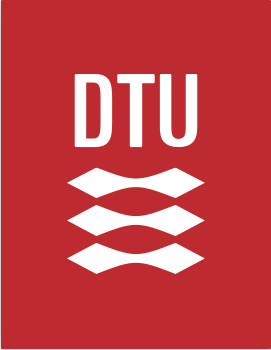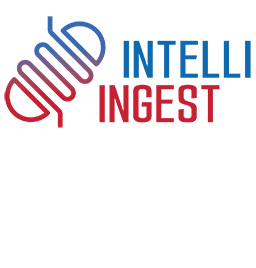Network Training School
On-site network wide training

Intelli-Ingest Training School 1: Fundamentals of Biomedical Engineering for Ingestible Devices
This multi-day training event offers a comprehensive overview of the key disciplines driving innovation in ingestible medical technologies. Participants will explore biomaterials and drug delivery systems, delve into microengineering and robotics for biomedical applications, and gain hands-on insights into machine learning and medical imaging. The program concludes with a focused session on the technical and ethical challenges of ingestible devices. Designed to foster interdisciplinary knowledge, the event equips researchers with the foundational and advanced skills needed to contribute to cutting-edge developments in the field.

Intelli-Ingest Training School 2: Foundations of Responsible Research and Innovation
This multi-day training event offers Doctoral Candidates a solid foundation in ethical research practices, open science, and responsible innovation. It covers key topics such as research integrity, equity and inclusion, open access publishing, data sharing, and legal considerations. The final day addresses sustainability, social impact, and the importance of science communication. The program prepares participants to carry out transparent, ethical, and socially engaged research.

Intelli-Ingest Training School 3: Fundamentals of Medical Device Design and Commercialisation
This multi-day training event provides Doctoral Candidates with an end-to-end overview of the medical device development process, from design to market. It begins with identifying healthcare needs and developing innovative concepts, followed by an exploration of global regulatory frameworks, ethical compliance, and validation methods. The final day focuses on commercialisation, covering business models, intellectual property, reimbursement, and industry perspectives. The program equips participants with practical knowledge to navigate the full lifecycle of medical device innovation.

Intelli-Ingest Training School 4: Career Development and Professional Engagement & Intelli-Ingest Workshop
This multi-day event combines career development, professional engagement, and research dissemination. Doctoral Candidates (DCs) will participate in sessions on career planning, CV writing, interview techniques, and academic grant writing, along with creating professional video profiles. The event also includes an Open Day where DCs present their research to academic and industry stakeholders, followed by a keynote on ingestible devices. It concludes with collaborative planning sessions to foster future research partnerships.
Online network-wide training
Intelli-Ingest Journal Club
During the first year, the PIs will organise the journal club, each PI will host and moderate a different session, giving all students a wider view of research in the ingestible devices space. After the first year, the DCs will take over the event’s organisation, though a PI will always be present, providing the DCs with opportunities to develop leadership and organisational skills.
An introduction to patient and public involvement and engagement
All DCs will be informed on the importance of PPIE in delivering better quality research by providing valuable insights into the lived experience of those living with a disease or condition, as it can help better characterise the challenges and needs that technology should address. Students will do various online activities, such as writing lay summaries to communicate their research to patients effectively.
Patient and public involvement (PPIE) sessions
DCs will use their PPIE skills by being active listeners in PPIE sessions organised with patient groups for those living with GI disease across Europe.
Introduction to Gastrointestinal Physiology and Pathology
All Doctoral Candidates will receive lectures on the structure and function of the gastrointestinal tract, with a focus on how these aspects influence the design of ingestible devices. The training will also cover major gastrointestinal diseases such as colorectal cancer (CRC) and inflammatory bowel disease (IBD), along with current diagnostic and treatment approaches.
Introductory data analysis and communication
This training introduces the fundamentals of statistics and experimental design, providing participants with essential tools for planning robust scientific studies. It also covers best practices for presenting data graphically, helping researchers communicate their findings clearly and effectively.
Effective project management
This session provides participants with practical tools to plan, monitor, and execute research projects efficiently. Key topics include the use of Gantt charts for scheduling, the Critical Path Method for identifying project timelines, and techniques for risk identification and mitigation.
Effective public engagement
This session on effective public engagement trains DC to communicate their research to a broad audience. Using skills developed during the program, each participant will prepare a video presentation that highlights their work in an accessible and engaging way.
Best practice in scientific posters
This session focuses on best practices for creating scientific posters, covering key principles of layout, design, and content clarity. Participants will learn how to effectively communicate their research visually, ensuring their posters are both informative and engaging for academic and professional audiences.
Medical Device Regulation in Europe
This session provides an overview of medical device regulation in Europe, covering the key legal frameworks and standards governing the development, approval, and marketing of medical devices. Participants will learn about the European Union’s Medical Device Regulation (MDR), the role of regulatory bodies, and the processes for ensuring compliance and safety in the medical device industry.
Effective Scientific Writing
This session focuses on the principles of effective scientific writing, guiding participants on how to structure and present their research clearly and concisely. Topics include writing for academic journals, crafting compelling abstracts, improving readability, and adhering to publication standards. Participants will gain practical skills to communicate their findings effectively to the scientific community.
Introduction to Intellectual Property
This session introduces the fundamentals of Intellectual Property (IP), covering key concepts such as patents, trademarks, copyrights, and trade secrets.

Funding scheme: This research has received funding from the European Union’s Horizon Europe research and innovation programme under the Marie Skłodowska-Curie Actions Doctoral Network INTELLI-INGEST Grant Agreement N° 101169012 and the UKRI Horizon Europe Guarantee under Grant Agreement EP/U536726/1
